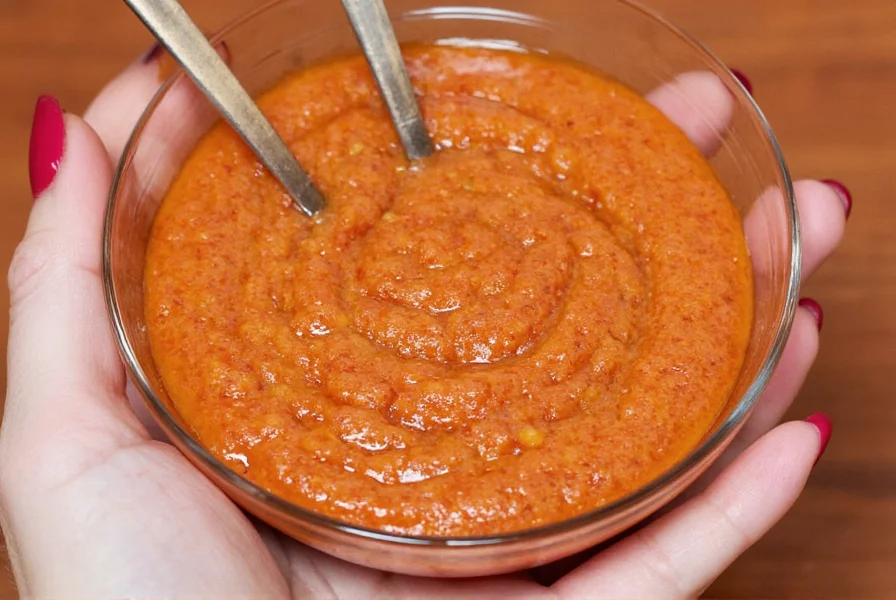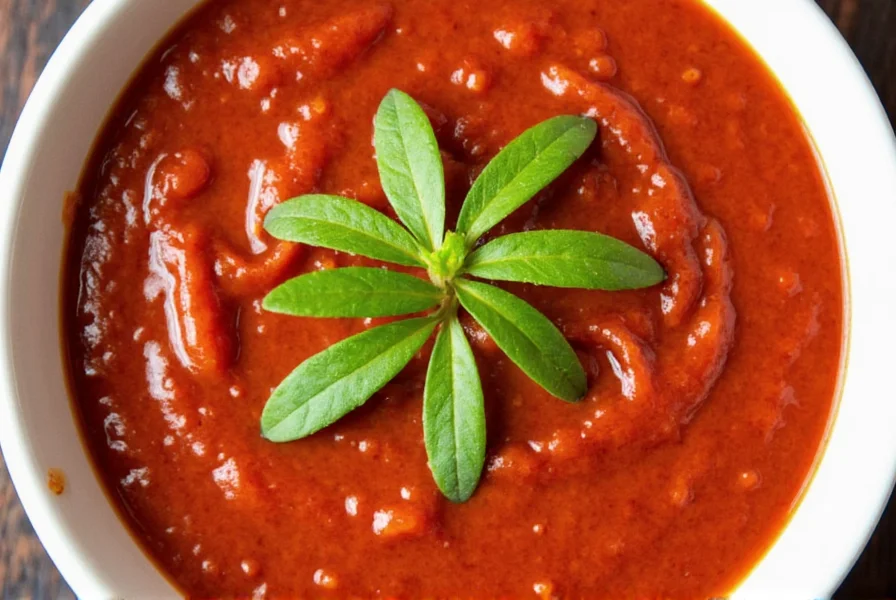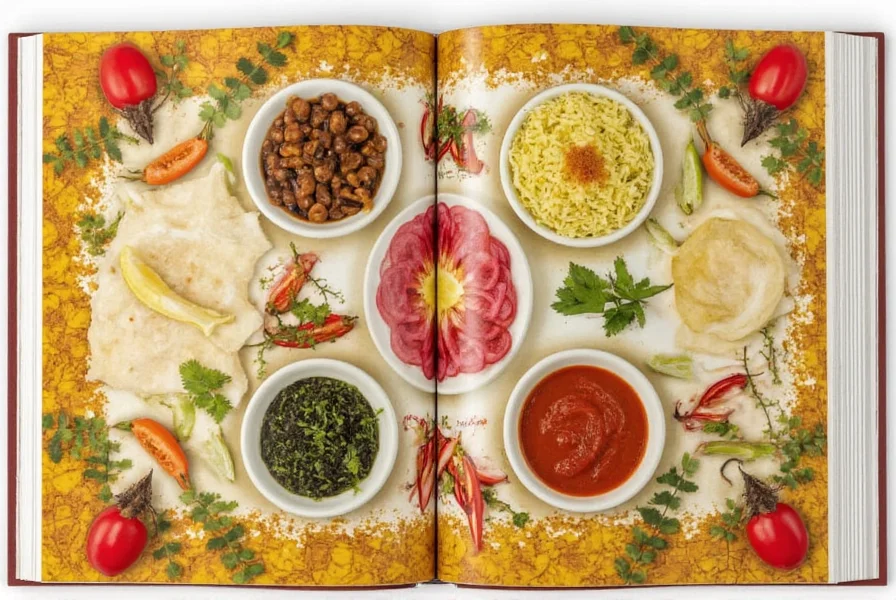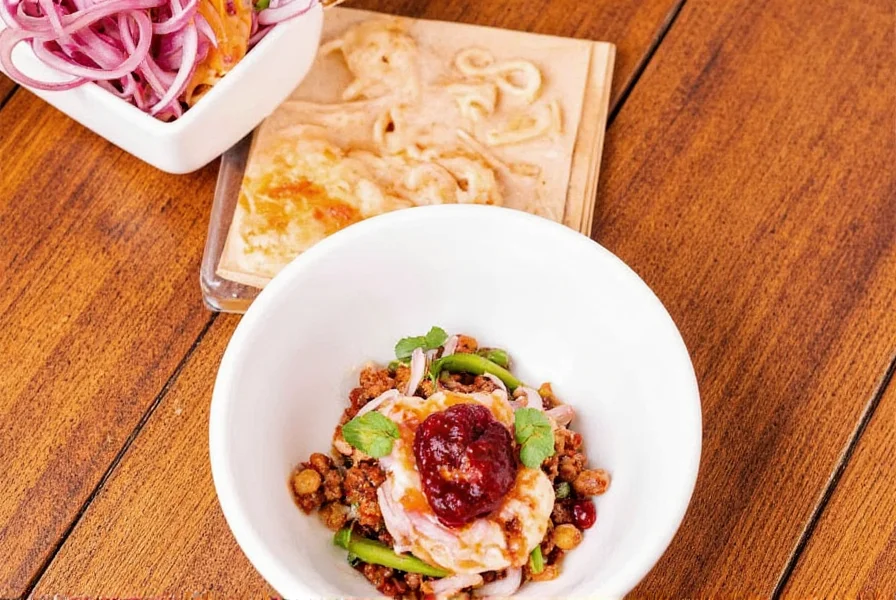Sauce aji is a traditional chili-based condiment originating from Peru and other Andean regions, made from native peppers like aji amarillo, aji panca, or aji rocoto. Known for its vibrant flavors and heat, it's a staple in Latin American cuisine, enhancing dishes like ceviche, empanadas, and stews with authentic taste. Whether you're new to spicy foods or a seasoned enthusiast, this guide will help you master sauce aji.
Table of Contents
- What Is Sauce Aji?
- Flavors & Varieties You Need to Try
- Why Every Kitchen Needs Sauce Aji
- How to Use It Like a Pro
- Buying Guide: Finding Your Perfect Match
- Make Your Own at Home
- Frequently Asked Questions
- Final Thoughts
What Is Sauce Aji?
Sauce aji is a chili-based condiment originating from Peru, Ecuador, and other Andean regions. The word "aji" actually refers to chili peppers in Quechua, an indigenous language spoken across South America. Unlike traditional hot sauces made from cayenne or habanero, aji sauces are often made using native pepper varieties like aji amarillo, aji panca, or aji rocoto — each offering a unique blend of heat, aroma, and fruity undertones.

In Latin cuisine, sauce aji isn't just about spice — it's about enhancing dishes like ceviche, grilled meats, empanadas, and stews with layers of flavor that make every bite unforgettable. From mild and smoky to blazing hot and citrusy, there's a version of sauce aji for every palate.
Flavors & Varieties You Need to Try
One of the coolest things about sauce aji is its versatility. Depending on the type of chili used, the preparation method, and added ingredients like lime juice, garlic, or vinegar, you can experience wildly different flavors and levels of spiciness.
| Type of Aji | Heat Level (SHU) | Flavor Profile | Best Used For |
|---|---|---|---|
| Aji Amarillo | 30,000–50,000 | Bright, fruity, slightly floral | Ceviche, grilled fish, rice dishes |
| Aji Panca | 1,000–2,000 | Smoky, mildly sweet, raisin-like | Stews, marinades, soups |
| Aji Rocoto | 100,000–250,000 | Intense heat, fruity, floral | Meat dishes, spicy sauces |
| Aji Limo | 30,000–100,000 | Earthy, citrusy, bold | Seafood, ceviche, sauces |
| Aji Verde | Varies | Fresh, tangy, herbaceous | Dips, dressings, tacos |
Why Every Kitchen Needs Sauce Aji
If you're not yet convinced that sauce aji deserves a permanent spot in your fridge, here are five reasons why it might just become your new kitchen MVP:
- Flavor Explosion: Unlike many mass-produced hot sauces, aji sauce adds complexity and depth — not just heat.
- Versatile: From dips to marinades, a dollop of aji can elevate almost any savory dish.
- Natural Ingredients: Most homemade or artisanal versions use only fresh chilies, garlic, onions, vinegar, and lime.
- Customizable Heat: Make it mild or fire-hot — it's all in your hands!
- Global Appeal: Adds authentic Latin flair to everything from burgers to pasta.

How to Use It Like a Pro
You don't need to be a chef to enjoy sauce aji. Here are some creative and practical ways to incorporate it into your everyday meals:
- As a Dipping Sauce: Serve alongside fries, chicken tenders, plantain chips, or grilled veggies.
- Mix Into Mayonnaise: Combine with mayo, sour cream, or Greek yogurt for an instant spicy spread.
- Add to Marinades: Toss with chicken, beef, or tofu before grilling or roasting.
- Stir Into Soups & Stews: A spoonful of aji can transform a bland broth into something memorable.
- Elevate Breakfast: Drizzle over scrambled eggs, avocado toast, or breakfast burritos.

Buying Guide: Finding Your Perfect Match
Not all aji sauces are created equal. Here's how to pick the right one based on your preferences:
1. Know Your Heat Tolerance
- New to spice? Look for aji panca or aji verde.
- Spice lover? Go for aji amarillo or aji limo.
- Fire-breathing dragon? Try aji rocoto — but handle with care!
2. Read the Ingredient List
- Aim for minimal ingredients: peppers, garlic, vinegar, lime, salt.
- Avoid sauces with preservatives, artificial colors, or high fructose corn syrup if possible.
3. Check the Brand Reputation
Some top-rated brands include:
- Tacosalad: Known for its creamy aji verde sauce, perfect for tacos and bowls.
- Mayta: Offers authentic Peruvian-style aji amarillo with real depth of flavor.
- La Costeña: Mexican brand with a line of aji-inspired salsas and sauces.
4. Consider Usage
- For drizzling: Choose thinner, more liquid sauces.
- For spreading: Go for thicker, paste-like consistency.
- For cooking: Look for concentrated pastes or purees.

Make Your Own at Home
Want full control over the heat, flavor, and ingredients? Making your own sauce aji is easier than you think. Here's a basic recipe to get you started:
Homemade Aji Amarillo Sauce
- Ingredients:
- 4–6 fresh aji amarillo peppers (or 2–3 tablespoons aji amarillo paste)
- 2 cloves garlic
- 1 small onion, chopped
- 1 tablespoon white vinegar
- Juice of 1 lime
- ½ cup water
- Salt to taste
Instructions:
- Roast the peppers over a flame or in the oven until blistered.
- Peel and deseed them (wear gloves if handling fresh peppers).
- Blend all ingredients until smooth.
- Taste and adjust seasoning. Add more water for a thinner consistency.

Frequently Asked Questions
What's the difference between aji sauce and regular hot sauce?
While both are spicy condiments, aji sauce is distinct because it's made from specific South American chili varieties (like aji amarillo, aji panca) that offer complex flavor profiles beyond just heat. Unlike many commercial hot sauces that focus primarily on spiciness, traditional aji sauces emphasize a balance of fruity, smoky, or floral notes alongside the heat. They're also often used as integral flavor components in dishes rather than just as finishing condiments.
Can I substitute aji sauce with other hot sauces?
You can substitute in a pinch, but you'll miss the authentic flavor profile. For aji amarillo, try mixing habanero sauce with a touch of mango puree for fruitiness. For aji panca's smoky sweetness, combine smoked paprika with roasted red peppers. However, for truly authentic Latin dishes, seeking out the specific aji variety called for will make a significant difference in capturing the intended flavor profile.
How long does homemade aji sauce last?
Properly stored in an airtight container in the refrigerator, homemade aji sauce typically lasts 2-3 weeks. For longer storage, freeze in ice cube trays then transfer to freezer bags - it will keep for up to 6 months. The shelf life depends on ingredients used; sauces with more vinegar and less fresh produce generally last longer. Always use clean utensils when serving to prevent contamination.
What are the "secrets" to using aji sauce like a Latin cuisine expert?
The five key secrets are: 1) Add it early in cooking to mellow the heat and let flavors meld, 2) Balance with acid (like lime juice) to enhance brightness, 3) Pair specific aji varieties with complementary proteins (aji amarillo with fish, aji panca with chicken), 4) Use as a finishing touch for fresh dishes like ceviche, and 5) Create a flavor base by sautéing aji sauce with onions and garlic before adding other ingredients - this unlocks deeper, more complex flavors that define authentic Latin cooking.
Is aji sauce the same as aji amarillo?
No, aji amarillo is one specific type of chili pepper (meaning "yellow chili" in Spanish), while "aji sauce" refers to any sauce made from aji peppers. Aji amarillo is just one variety among many (including aji panca, aji rocoto, etc.) used to make different types of aji sauce. Think of it like how "tomato sauce" isn't the same as "roma tomatoes" - one is the ingredient, the other is the preparation.
How can I reduce the heat of aji sauce if it's too spicy?
There are several effective ways: 1) Mix with dairy (yogurt, sour cream, or mayonnaise), 2) Add sweetness (honey, sugar, or fruit like mango), 3) Dilute with more of the base liquid in your recipe (broth, water, or oil), 4) Balance with acid (lime or lemon juice), or 5) Add starch (potato or bread) which absorbs capsaicin. Remember that cooling methods work best when added gradually while tasting - it's easier to add more heat than to remove it once incorporated into a dish.
What dishes absolutely need aji sauce to be authentic?
Certain Latin American dishes aren't authentic without specific aji sauces: Peruvian ceviche (aji limo), Rocoto Relleno (aji rocoto), Papa a la Huancaína (aji amarillo), and Aji de Gallina (aji panca). These dishes were developed around the unique flavor profiles of these specific peppers, so substitutions change the fundamental character of the dish. For true authenticity, seek out the specific aji variety called for in traditional recipes.
Final Thoughts
Sauce aji is more than just a condiment — it's a flavor adventure waiting to happen. Whether you buy it off the shelf or whip it up in your own kitchen, it brings excitement, tradition, and personality to every dish. So go ahead, embrace the heat, explore the flavors, and let sauce aji become your next kitchen essential.
Remember, the key to enjoying aji sauce is balance. Don't be afraid to experiment with different types and pairings. After all, spice is life — and sauce aji is the ultimate way to live it boldly.











 浙公网安备
33010002000092号
浙公网安备
33010002000092号 浙B2-20120091-4
浙B2-20120091-4